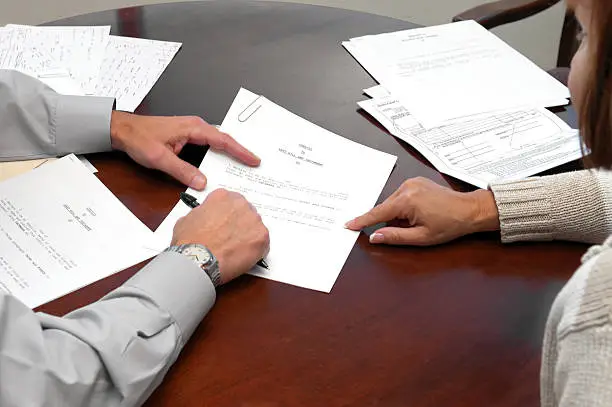The Texas Department of Family and Protective Services (DFPS) stands at the forefront regarding protecting the most vulnerable members of society. Among its many responsibilities, one of the critical areas where DFPS plays a significant role is in guardianship cases. Guardianship involves the legal responsibility for the care and management of a person, typically a minor, an elderly individual, or someone incapacitated. This comprehensive article explores the multifaceted role of DFPS in guardianship cases in Texas, covering the legal framework, responsibilities, processes, and impact on the lives of those under guardianship.
Understanding Guardianship: A Legal and Social Framework
Before diving into the role of DFPS, it is essential to understand what guardianship entails. Guardianship is a legal arrangement in which a court appoints an individual or entity (the guardian) to make decisions on behalf of another person (the ward) who is unable to make decisions for themselves due to age, incapacity, or disability. Guardianship can cover various aspects of the ward’s life, including personal, medical, and financial decisions.
In Texas, the Texas Estates Code governs guardianship cases, outlining the legal standards and procedures for establishing, administering, and terminating guardianships. The primary goal of guardianship is to protect the ward’s well-being while preserving their rights and autonomy as much as possible.

The Role of DFPS in Guardianship Cases: An Overview
The Texas Department of Family and Protective Services protects children, the elderly, and individuals with disabilities from abuse, neglect, and exploitation. In the context of guardianship, DFPS plays several crucial roles, particularly in cases involving vulnerable populations such as minors and adults with disabilities.
1. Investigating Guardianship Cases
One of the most vital roles of DFPS in guardianship cases is to investigate allegations of abuse, neglect, or exploitation. When the department receives reports or referrals suggesting that a minor, elderly person or incapacitated adult may be in danger, DFPS is responsible for conducting a thorough investigation. This investigation includes assessing the individual’s living conditions, medical needs, and the behavior of the current or proposed guardian.
DFPS social workers and investigators may interview the ward, the guardian, and other relevant parties, such as family members, neighbors, and medical professionals, to gather information. Based on the findings, DFPS may make recommendations to the court regarding the need for guardianship or changes to the existing guardianship arrangement.
2. Initiating Guardianship Proceedings
DFPS often takes the initiative to file for guardianship when they determine that an individual cannot adequately care for themselves and lacks a suitable guardian. This action frequently occurs when authorities remove a child from their home due to abuse or neglect or when they discover an elderly person living in unsafe conditions without proper care.
When DFPS files for guardianship, the agency acts as the petitioner, presenting evidence to the court to support the need for a guardianship order. The court then evaluates the case, considering the best interests of the ward and whether the proposed guardianship is the least restrictive option available.
3. Serving as Guardian of Last Resort

DFPS also has the authority to serve as the guardian of last resort when no other suitable individual or entity is available or willing to take on the responsibility. In cases involving children removed from their homes due to abuse or neglect, as well as adults with disabilities who lack family or friends to act as guardians, someone most commonly assumes this role.
When DFPS becomes the guardian, the agency takes full responsibility for making decisions on behalf of the ward, including healthcare, education, and living arrangements. DFPS ensures that it meets the ward’s needs, protects their rights, and prioritizes their well-being.
4. Monitoring and Oversight of Guardianships
Even after a guardian has been appointed, DFPS continues to play a crucial role in monitoring and overseeing guardianship arrangements. This ongoing oversight is essential to ensure that the guardian is fulfilling their duties and that the ward’s needs are being adequately met.
DFPS conducts regular visits and assessments to monitor the ward’s living conditions, health, and overall well-being. The agency also reviews the guardian’s management of the ward’s finances and assets, ensuring that there is no misuse or misappropriation of funds. If DFPS identifies any concerns or violations, the agency can take corrective action, which may include recommending changes to the guardianship arrangement or seeking the removal of the guardian.
5. Advocacy and Support for Wards
In addition to its investigative and oversight roles, DFPS also serves as an advocate for the rights and well-being of wards in guardianship cases. The agency works to ensure that wards are treated with dignity and respect and that their voices are heard in the decision-making process.
DFPS social workers and advocates may work with the court to ensure that the ward’s preferences and wishes are considered, particularly in cases involving medical decisions, living arrangements, and end-of-life care. The agency also provides support services to help wards access necessary resources, such as medical care, social services, and educational opportunities.
6. Collaboration with Other Agencies and Stakeholders
Guardianship cases often involve collaboration between multiple agencies, stakeholders, and professionals, including courts, attorneys, healthcare providers, and social service organizations. DFPS plays a central role in coordinating these efforts, ensuring that all parties work together to achieve the best possible outcome for the ward.
This collaboration may involve sharing information, attending court hearings, participating in multidisciplinary team meetings, and working with community organizations to provide support services to the ward. DFPS’s role as a coordinator and collaborator is essential to the success of guardianship cases, as it helps to ensure that all aspects of the ward’s care are addressed comprehensively and effectively.
7. Education and Training on Guardianship
DFPS also plays a significant role in educating and training guardians, social workers, and other professionals involved in guardianship cases. The agency provides resources and training programs to help guardians understand their responsibilities and legal obligations, as well as best practices for caring for their wards.
In addition to training guardians, DFPS also educates the public about guardianship and the resources available to support vulnerable individuals. This outreach is essential for raising awareness about the importance of guardianship and the role that DFPS plays in protecting the rights and well-being of wards.
Challenges Faced by DFPS in Guardianship Cases
While DFPS plays a critical role in guardianship cases, the agency also faces several challenges in fulfilling its responsibilities. These challenges include:

- Resource Limitations: DFPS often operates with limited resources, including staffing and funding, which can make it difficult to conduct thorough investigations, provide ongoing oversight, and offer support services to wards.
- Complexity of Cases: Guardianship cases can be highly complex, involving multiple legal, medical, and social factors. DFPS must navigate these complexities while ensuring that the ward’s best interests are always the top priority.
- Balancing Rights and Protection: One of the most significant challenges in guardianship cases is balancing the need to protect vulnerable individuals with the need to preserve their rights and autonomy. DFPS must carefully consider the least restrictive options available and advocate for the ward’s preferences and wishes whenever possible.
- Collaboration and Communication: Effective collaboration and communication among all parties involved in guardianship cases can be challenging, particularly when there are conflicting opinions or interests. DFPS must work to facilitate cooperation and ensure that all stakeholders are working toward the same goal: the well-being of the ward.
Impact of DFPS’s Role in Guardianship Cases
The role of DFPS in guardianship cases has a profound impact on the lives of those under guardianship. By investigating, initiating, and overseeing guardianships, DFPS helps ensure that vulnerable individuals receive the care and protection they need. The agency’s efforts to advocate for the rights and well-being of wards, provide support services, and educate guardians and the public also contribute to the overall success of guardianship arrangements.
In many cases, DFPS’s involvement in guardianship cases has helped prevent abuse, neglect, and exploitation, providing a safety net for those who are unable to care for themselves. The agency’s work also helps to promote the dignity and autonomy of wards, ensuring that their voices are heard and their preferences are respected.
Conclusion: The Crucial Role of DFPS in Guardianship Cases
The Texas Department of Family and Protective Services plays a crucial role in guardianship cases, serving as a protector, advocate, and overseer for some of the state’s most vulnerable residents. DFPS actively ensures that guardianship arrangements prioritize the ward’s best interests by investigating, initiating guardianship proceedings, monitoring and overseeing cases, advocating, and collaborating with relevant parties.
While the challenges faced by DFPS are significant, the agency’s dedication to its mission and its commitment to protecting the rights and well-being of those under guardianship make it an indispensable part of the guardianship process in Texas. As society continues to evolve, DFPS’s role in guardianship cases will remain vital in safeguarding the lives and dignity of those who cannot protect themselves.







